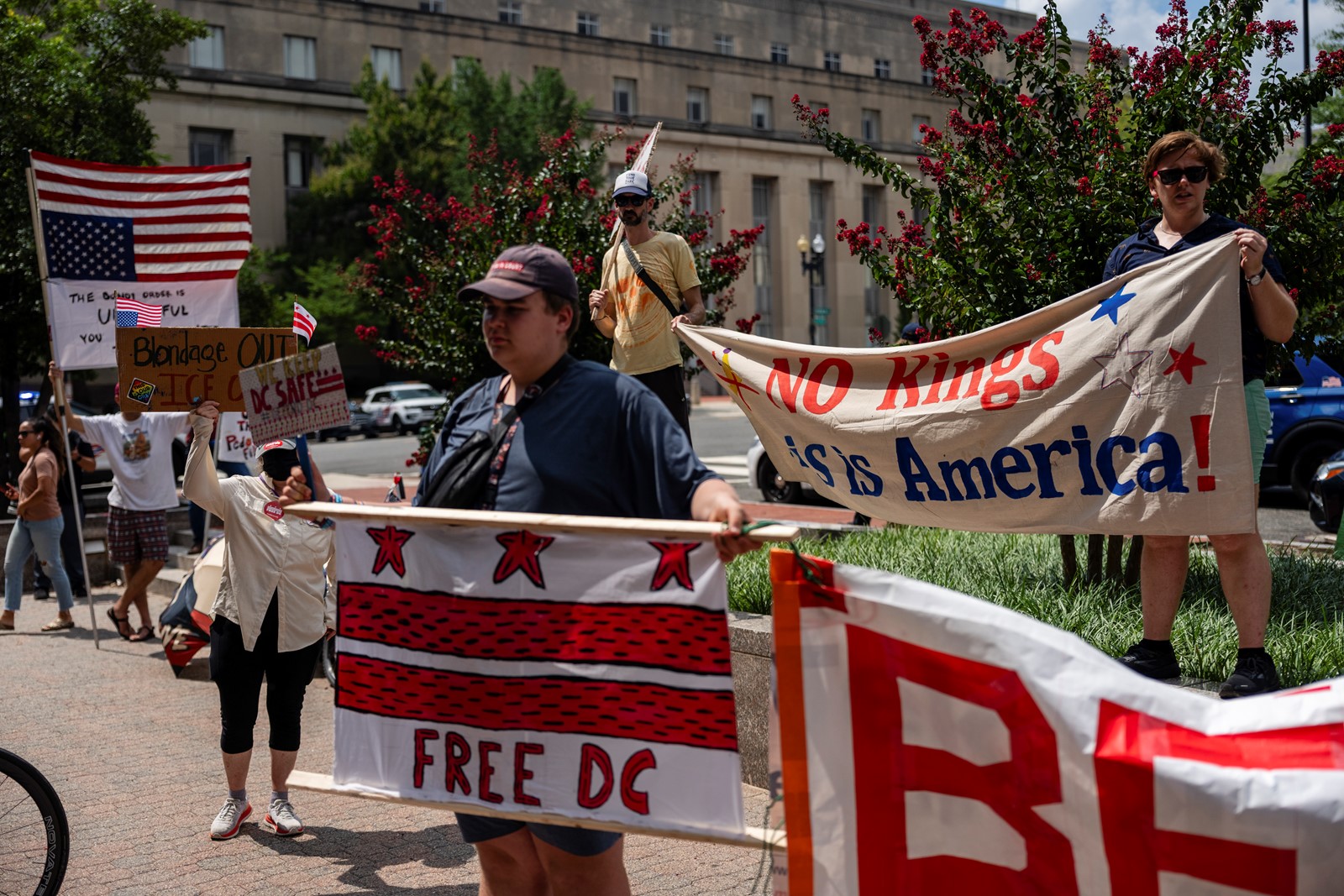
Facing a lawsuit and pointed questions from a federal judge, the Trump administration agreed on Friday to pull back its attempt to take direct control over the District of Columbia Police Department by installing a Trump administration official to run the agency.
The legal fight, which prompted an emergency court hearing Friday afternoon, was the most contentious episode since the Donald Trump administration announced Monday that it was placing the city’s Police Department under “federal control.” The retreat by Justice Department officials represented a significant, if narrow, victory for the city’s government as it contends with the federal intervention.
A host of other issues raised by the city about the federal intervention were not resolved on Friday, including the scope of demands that the administration can place on the local police. A hearing on those issues is scheduled for this week.
In court Friday, U.S. District Judge Ana C. Reyes issued no formal ruling but asked pointed questions of the Justice Department lawyer, Yaakov Roth, and appeared to take a skeptical view of the president’s broad interpretation of his authority under the 1973 Home Rule Act, the federal law granting the residents of D.C. the right to limited self-government.
“The statute would have no meaning at all if the president can just say, ‘We’re taking over your police department,’ ” said Reyes, who was nominated to the federal bench by President Joe Biden.
The judge made clear that she was considering a ruling that would block the administration’s entire order as unlawful, but said she would prefer if the lawyers on both sides worked out some modifications to the order. After several hours, the Justice Department lawyers reissued the order, leaving the city in control of the police force.
City officials praised the outcome Friday as an affirmation of the Washington’s autonomy.
Speaking to reporters, Brian Schwalb, the D.C. attorney general, said the law makes clear “that the authority to appoint a chief of police sits squarely with the mayor, and the right to control the local policing of our city sits with the mayor and the chief of police, notwithstanding the government, the president and the attorney general’s efforts to suggest that they had taken control of our police force.”
In a post on social media announcing the redrafted order, Attorney General Pam Bondi criticized Schwalb for, she said, opposing the administration’s “efforts to improve public safety.” But she said the administration remained committed to working closely with D.C. Mayor Muriel Bowser, “who is dedicated to ensuring the safety of residents, workers, and visitors” in the city.
Local officials were taken by surprise Thursday evening when Bondi issued an order naming Terrance C. Cole, the head of the Drug Enforcement Administration, as an “emergency police commissioner.” The directive came after days of assurances by local officials, including the mayor and the police chief, that they would work as partners alongside federal law enforcement.
Within hours of the order by Bondi, Schwalb responded with an opinion arguing that the directive was unlawful and that the mayor should not abide by it. On Friday morning, his office filed a lawsuit against the Trump administration, challenging the “brazen usurpation” of the city’s authority.
Even with the administration’s modification of their efforts on Friday, many of the concerns about federal intervention raised by Schwalb and shared by the city’s leaders and residents remain.
Trump’s executive order asserting federal control was based on a section of the Home Rule Act that explicitly gives presidents temporary authority to “direct the mayor to provide him” such services of deemed “necessary and appropriate” to address “special conditions of an emergency nature.”
That order declared that there was a “crime emergency” in the city, and Trump said that he was “placing the D.C. Metropolitan Police under direct federal control.”


 PREVIOUS ARTICLE
PREVIOUS ARTICLE
